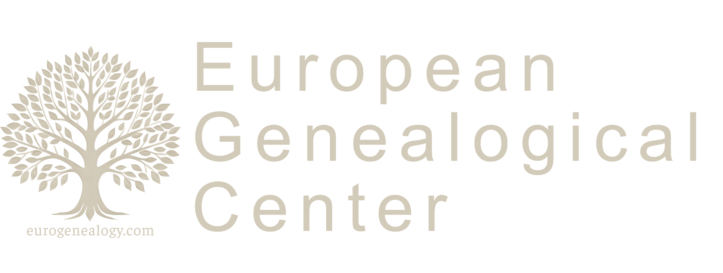Genealogical research in Czechia: tracing ancestors & family history
Discover your ancestry dating back to the 16th century
Archival search and family tree research in Czechia
Genealogical research in Czechia offers a unique opportunity to reconstruct your family history, confirm Czech ancestry, and discover the social, cultural, and historical background of the region where your ancestors lived. The history of the Czech lands — Bohemia, Moravia, and Silesia — is deeply intertwined with Austria-Hungary, the Holy Roman Empire, Germany, Poland, and other neighboring countries, shaping a complex and multilayered historical landscape. As a result, genealogical searches in Czechia often lead to remarkable discoveries connected with a rich variety of ethnicities, languages, and religious traditions. The European Genealogical Center provides a full range of professional services, including ancestral research, archival document analysis, family tree construction, and biographical studies based on authentic historical records. Czech archives hold an extensive and diverse collection of genealogical sources dating from the 16th century to the present day, making it possible to conduct thorough, precise, and in-depth genealogical investigations with a high level of historical accuracy.
Clients often contact us to confirm their Czech origin and obtain the necessary documentation for repatriation, citizenship applications, long-term residence, or other official legal procedures. We conduct detailed and meticulous searches in national, regional, and church archives throughout Czechia, covering both urban and rural areas, and access a wide range of archival collections carefully preserved by state institutions, municipalities, and religious communities. Our team recovers lost records, obtains certified documents, and compiles professionally designed family history books that include not only archival materials but also historical notes, photographs (if available), and rich family narratives for future generations. Our specialists carefully take into account shifting historical borders, administrative changes, variations in place names, and unique regional particularities — all of which are especially important when tracing ancestors in areas that underwent multiple changes in governance, political regimes, or jurisdiction.
Sources of genealogical research in Czechia
To reconstruct a family tree and trace ancestry in Czechia, we work with a wide variety of archival sources: parish registers, church books, census records, property inventories, legal cases, school documents, personnel files, guild registries, and institutional archives. Each source is examined with great precision and deep contextual understanding to extract every possible piece of genealogical information and avoid omissions or misinterpretations. Special attention is given to records preserved in Czech, German, Latin, and Hebrew — depending on the time period, geographic region, and religious affiliation of the family we are researching. Church books of Catholic, Protestant, Orthodox, and Jewish communities remain one of the most valuable and reliable sources for tracing key vital life events and reconstructing family histories in detail. These documents allow us to establish essential biographical data, such as dates and places of birth, baptism, marriage, and death, as well as occupation, property ownership, social status, patterns of geographic mobility, and long-term settlement trends across several generations with remarkable accuracy.


In addition to primary sources, we examine a wide range of supplementary archival materials, including school and university records, employment histories, military service files, property and tax registers, electoral lists, household enumerations, and historical censuses, often comparing multiple copies or parallel registers to ensure accuracy. These sources help reconstruct a timeline and reveal the social, economic, and cultural environment in which your ancestors lived, showing how they interacted with neighbors, participated in local governance, and responded to historical events. We also analyze documents capturing migration patterns, inheritance disputes, and land ownership changes, allowing us to trace family movements and understand their underlying reasons. Each project is approached individually and methodically, with careful consideration of regional specifics, historical context, and original language of sources, while accounting for paleographic details and documentation gaps. Our goal is to create a complete, accurate, and meaningful portrait of your family’s past that reflects not only names and dates but also the stories, challenges, and accomplishments that shaped its history.
Neighboring countries where we conduct research
Examples of our research
Below you can review examples of research reports received by our customers:
Prices for genealogical services in Czechia
You can find a detailed price list and description of all services of European Genealogical Center here
Prices for genealogical services in Czechia
Genealogical research
From €1500
Tracing family history back to the 17th century
Biographical search
From €500 to €2000
Establishing the life story of an individual and their close relatives
Nationality confirmation
From €400 to €1500
Identifying details about a person’s ethnic origin
Document search
From €100 to €1000
Obtaining certificates, parish registers, and civil registry records
Family history book
From €2500
Creating a unique publication describing the genus history
Family history website
From €2000
Development of a personal website dedicated to your family’s history
Submit a request, and we will contact you shortly
You can also reach us directly by sending an email to: european.genealogical.center@gmail.com or writing to us in Telegram

european.genealogical.center@gmail.com
© 2026
All rights reserved
All rights reserved
Contact us:

